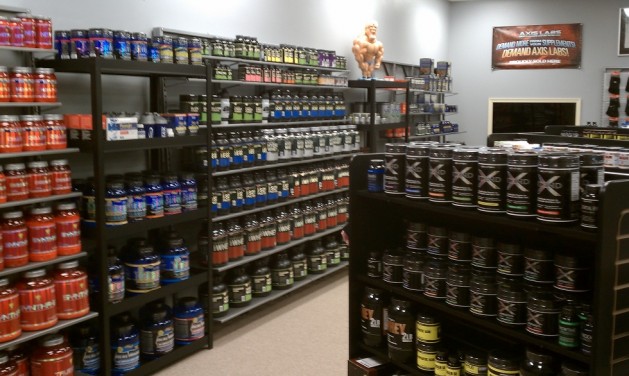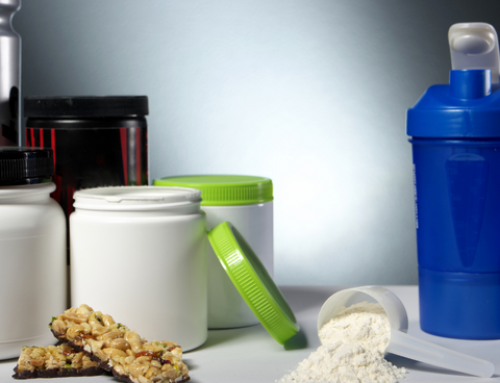How Pre-Workout Supplements Are Slowing You Down
If you’ve ever visited a nutrition or supplement store, you’ve been bombarded with advertisements for the latest and greatest pre-workout supplements. At one time or another, you might have parted with some hard-earned cash to see what all the fuss was about.
As expected, the first time you tried it, the supplement probably gave you an initial boost, supercharging your central nervous system and leading to a great workout. (Find out which supplements are safe.) But eventually—three, five or 10 workouts down the line—that initial feeling wore off, and you were forced to double or even triple the dose to get close to the same “high” you first experienced.
With continued use, many athletes inevitably get to the point where they feel that they can’t work out without their pre-workout supplement. Then, a vicious cycle begins, where they need a stimulant just to feel normal and get through the work day and their daily gym session or practice.
The problem with stimulants, which are found in many pre-workout supplements, is that you’re trading off a temporary high for the inevitable low that comes later, overworking your adrenal glands in the process. High doses of caffeine and stimulants such as 1,3 dimethylamylamine prevent your adrenal glands from ever truly getting a break, to the point where your mood, energy levels and sports performance suffer.
At the extreme, numerous reports linking stimulants in energy drinks to deaths have been leading newscasts across North America over the last few weeks. (I’m looking at you Monster and 5-Hour Energy.)
Some days, a caffeine boost may be necessary, but in most cases you can feel just as energized by taking care of your body and letting it perform as intended.
Alternatives to Stimulants
Proper Nutrition. Give your body the fuel it needs through proper nutrition, with balanced meals preceding and following exercise. A balanced approach includes equal amounts lean protein (fish, chicken breast) and quality carbohydrates (quinoa, oatmeal, rice), with a salad and a small amount of olive oil. It’s also best to eat or drink 100 calories of fast-acting carbs, such as a banana or Gatorade Prime, 15 minute before your workout. (Learn more about pre-workout nutrition.)
Sleep. Stimulant use, especially later in the day, can cut into your sleep duration and quality. Cut all stimulants after 5:00 p.m., and aim for seven to nine hours of quality sleep each night.
Tea. One or two cups of coffee a day is fine, but a good alternative is tea, especially later in the day. It has a quarter of the caffeine and is loaded with healthy antioxidants. My personal favorite is green tea.
RECOMMENDED FOR YOU
MOST POPULAR
How Pre-Workout Supplements Are Slowing You Down
If you’ve ever visited a nutrition or supplement store, you’ve been bombarded with advertisements for the latest and greatest pre-workout supplements. At one time or another, you might have parted with some hard-earned cash to see what all the fuss was about.
As expected, the first time you tried it, the supplement probably gave you an initial boost, supercharging your central nervous system and leading to a great workout. (Find out which supplements are safe.) But eventually—three, five or 10 workouts down the line—that initial feeling wore off, and you were forced to double or even triple the dose to get close to the same “high” you first experienced.
With continued use, many athletes inevitably get to the point where they feel that they can’t work out without their pre-workout supplement. Then, a vicious cycle begins, where they need a stimulant just to feel normal and get through the work day and their daily gym session or practice.
The problem with stimulants, which are found in many pre-workout supplements, is that you’re trading off a temporary high for the inevitable low that comes later, overworking your adrenal glands in the process. High doses of caffeine and stimulants such as 1,3 dimethylamylamine prevent your adrenal glands from ever truly getting a break, to the point where your mood, energy levels and sports performance suffer.
At the extreme, numerous reports linking stimulants in energy drinks to deaths have been leading newscasts across North America over the last few weeks. (I’m looking at you Monster and 5-Hour Energy.)
Some days, a caffeine boost may be necessary, but in most cases you can feel just as energized by taking care of your body and letting it perform as intended.
Alternatives to Stimulants
Proper Nutrition. Give your body the fuel it needs through proper nutrition, with balanced meals preceding and following exercise. A balanced approach includes equal amounts lean protein (fish, chicken breast) and quality carbohydrates (quinoa, oatmeal, rice), with a salad and a small amount of olive oil. It’s also best to eat or drink 100 calories of fast-acting carbs, such as a banana or Gatorade Prime, 15 minute before your workout. (Learn more about pre-workout nutrition.)
Sleep. Stimulant use, especially later in the day, can cut into your sleep duration and quality. Cut all stimulants after 5:00 p.m., and aim for seven to nine hours of quality sleep each night.
Tea. One or two cups of coffee a day is fine, but a good alternative is tea, especially later in the day. It has a quarter of the caffeine and is loaded with healthy antioxidants. My personal favorite is green tea.













